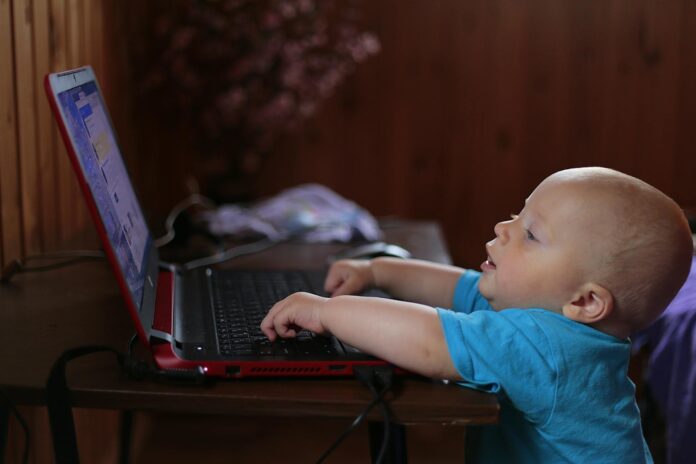Distracting an upset child with an electronic device may be the easiest way to stop a tantrum, but according to a new study, it’s not going to help them manage their emotions in the long run.
The research, which included contributions from the Université de Sherbrooke, found that parental intervention — and not screen time — in early childhood is key for developing anger management and control skills later in life. The results were published in Frontiers in Child and Adolescent Psychiatry.
Screen time is on the rise among young children, with the amount of time spent in front of a device each day increasing ever since the pandemic. Previous studies have shown that this can lead to behavioural problems for children — yet for busy parents, distracting a temperamental child with a device may feel like the only option.
To learn more about how these habits impact children’s self-regulation and anger management skills, the researchers behind the study surveyed Canadian families with preschool children aged 2–5 years over the course of two years. Parents were asked how much they agreed with the statement “I let my child use media to calm them down when they are upset”, as well as various questions about their children’s behaviour.
They found that children who were more frequently given screen time as a distraction during tantrums tended to have worse behaviour (for example, poorer anger/frustration management) at the end of the two-year study period. These children also tended to have problems with attentiveness and impulsivity.
Likewise, children who already had higher levels of behavioural problems at the start of the study were more likely to be given devices to calm them down.
“Parents with difficult children may struggle more with decreasing the tempers or negative emotions of the child,” the authors detail in their article. “Therefore, they may turn to digital devices to alleviate their burden.”
The authors explain how this can lead to a negative feedback loop, as children who already have behavioural problems are more likely to be given screen time as a form of managing their behaviour in the short term. In the long term, however, this can increase their behavioural issues even further.
The researchers conclude by suggesting that parents should be given support and education about how to help their children develop healthy emotion regulation skills without the use of digital devices.
“Early childhood is a critical time for learning basic self-regulation skills,” the authors say.
“Although the distraction [of digital devices …] can be an effective short-term strategy to reduce emotional intensity in young children, suppressing emotions can […] lead to maladaptive, avoidant coping strategies, increased negative emotionality or dysregulation in the future.”








































